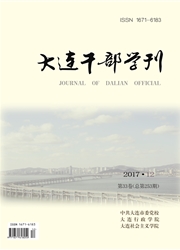

 中文摘要:
中文摘要:
中国道路的伟大实践对于马克思主义的政治经济学,特别是对其社会主义部分的发展具有奠基性的作用。中国道路的形成包含了对马克思主义政治经济学的一系列重大发展。其中主要方面有:中国道路建立了社会主义市场经济体制,在马克思主义政治经济学史上第一次把市场与社会主义结合在一起;中国道路坚持利用和发展资本,资本在财富创造中的作用在马克思主义政治经济学中得以确认;中国道路确立和完善公有制为主体、多种所有制经济共同发展的基本经济制度,马克思主义政治经济学把非公有制纳入了社会主义所有制的范畴;中国道路直面"虚拟经济"时代的到来,为马克思主义政治经济学填补了如何发展与监管"虚拟经济"的"空白";中国道路把发展经济作为首要任务,坚信"发展是硬道理",马克思主义政治经济学成了"以发展为中心"的政治经济学。
 英文摘要:
英文摘要:
The practice of Chinese path laid theoretical basis on socialist theories in Marxist political economy. It embodies great improvement of Marxist political economy. For instance, the foundation of socialist market economy support an important argument in Marxist political economy that market and socialism can strike a balance. The capital’s critical role in value creation demonstrated in Marxist political economy has been proved in China’s efficient use of capital market. Due to China’s successful experience in setting up basic economic system in which public ownership works as the mainstay wheres multiple forms of ownership as the supplementary, the non -public sector of the economy has been included into socialist ownership composition. China’s efforts in dealing with challenges of fictitious economy fills in the vacancy of studies of economic growth and its supervision in Marxist political economy. The development oriented nature of Marxist political economy rooted in the guideline of the Chinese path that taking development as the top priority and economic growth as the central task.
 同期刊论文项目
同期刊论文项目
 同项目期刊论文
同项目期刊论文
 期刊信息
期刊信息
